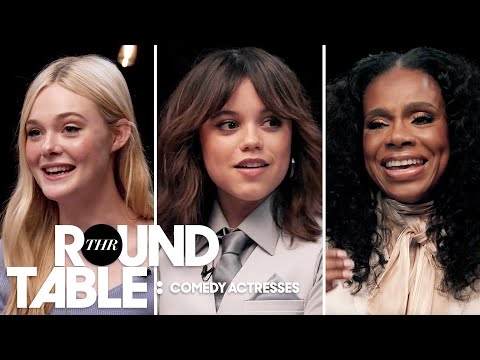When you’ve been in show business for as long as Natasha Lyonne, you start to get used to people saying strange things to you. And when you sit down with Barbara Walters, you expect it.
Lyonne has had one of the more unique personal and professional journeys in Hollywood, having started her career when she was six years old at the behest of her less-than-protective parents. The Russian Doll star and showrunner has struggled with substance abuse issues and legal trouble throughout her time on television and in film, as well as litany of inane, inappropriate or downright disturbing questions from media members or authority figures on her many projects.
In today’s Comedy Actress Roundtable for the Hollywood Reporter Lyonne recalled a couple questions that have given her pause during her prolific time in Hollywood, including Walters’ blunt query of “Child actor. Crack cocaine. Why?” which sounds more like an attempt to best Hemingway’s six-word story challenge than an interview question.
The reference to the late broadcaster came up when Lyonne and her peers were discussing intrusive questions and the lack of privacy that an artist has when their personal lives are so public in their work and, in Lyonne’s case, in the tabloids. Lyonne said her internal response to Walter’s prying went, “I’m like, “Whoa, whoa, whoa, lady, chill. I will happily tell you about my life experience. It’s out there. You can fucking google it. But instead of me being able to volunteer it through my work, you’re making it like you’ve discovered something about me that now I’m a victim of, when in fact it’s something I’ve overcome.”
At times, those strange questions have been darkly inappropriate requests from people in positions of authority. “I remember auditioning for Lolita, the remake, when I was 14 or 15, and (they asked me), ‘Can you eat this banana slowly?’” Lyonne recalled. “I was already a bit of a tough guy, so I was like (in a low voice), ‘So you mean eat the banana slowly?’”
When asked, Lyonne said that the one question she’d hope to hear would be “What do you believe in?” explaining, “I think the thing that’s tricky is that it’s almost like it’s implicit that you’re the victim of your own story instead of the owner of your narrative. And I am happy to volunteer with full transparency — I’ll tell you anything you want to know, but it’s my choice to tell you, not the other way around.”

